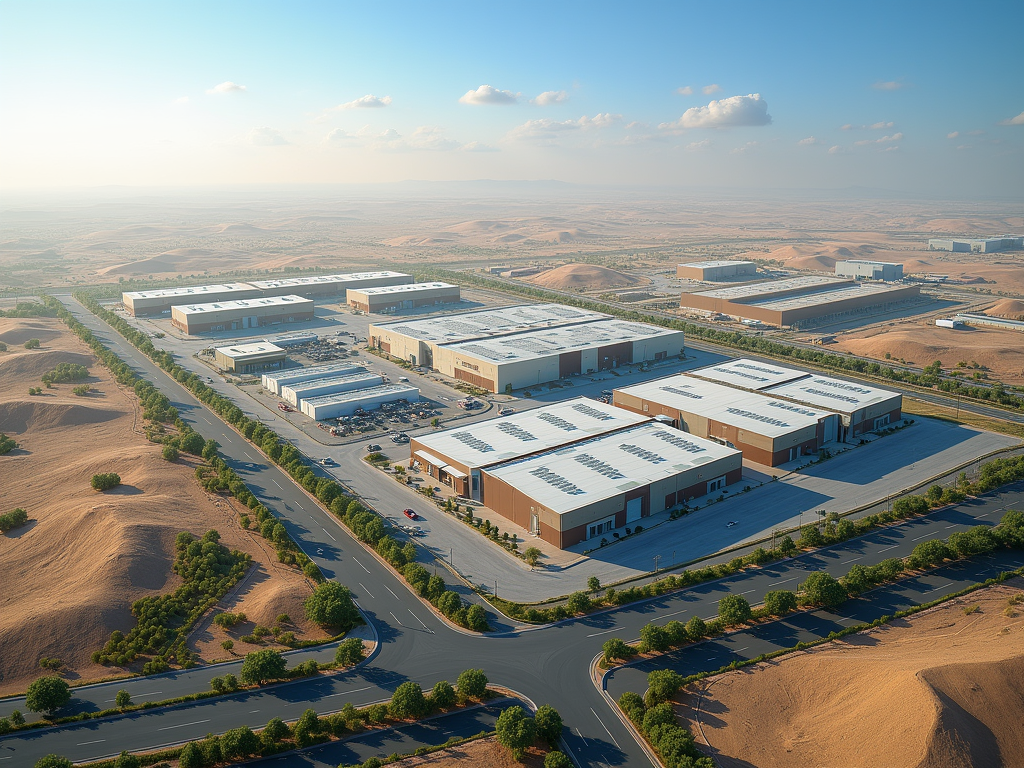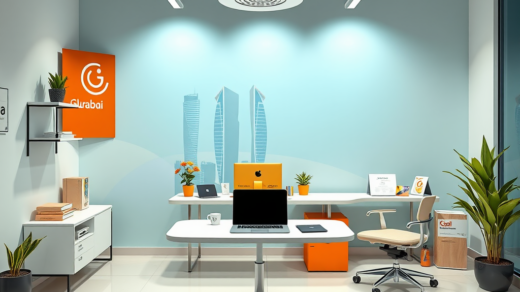How to Start a Manufacturing Business in Dubai
Starting a manufacturing business in Dubai can be a rewarding venture, given the city’s strategic location, business-friendly environment, and diverse economy. The process involves understanding local regulations, selecting the right business structure, and having a solid business plan. In this article, we’ll delve into the essential steps required to establish and operate a successful manufacturing business in Dubai.
Understanding the Market and Business Environment

Before starting a manufacturing business in Dubai, it is crucial to conduct thorough market research to understand the demand for your products. Dubai is a hub for various industries, including textiles, food processing, electronics, and construction materials. Knowing your industry landscape will help identify potential customers and competitors. Here are key factors to consider:
- Market Size: Analyze the market size for specific manufacturing sectors.
- Competitive Landscape: Study the competition to see how you can differentiate your offerings.
- Consumer Preferences: Understand what local and international consumers want.
- Economic Indicators: Keep an eye on economic health and trends that affect manufacturing.
- Regulatory Environment: Familiarize yourself with local laws regarding manufacturing.
Choosing the Right Business Structure

Choosing the appropriate business structure is an integral part of starting a manufacturing business in Dubai. The legal framework allows various types of business setups, such as sole proprietorships, limited liability companies (LLCs), and free zone companies. Here’s what you need to consider:
- Sole Proprietorship: Best for individual entrepreneurs, though liability is unlimited.
- Limited Liability Company (LLC): Suitable for larger operations, limiting personal liability.
- Free Zone Company: Beneficial for 100% ownership, but restrictions on local trading.
- Joint Venture: Ideal for partnerships with local firms, enhancing market reach.
- Branch Office: Suitable for foreign companies looking to expand their operations.
Obtaining Necessary Licenses and Permits
Once you have chosen a business structure, the next step involves obtaining the necessary licenses and permits. This step is critical as it ensures that your manufacturing business complies with local laws. The type of license you need will depend on your chosen business structure and the nature of your manufacturing activities. Here are some essential licenses:
- Trade License: Required for any commercial activity in Dubai.
- Industrial License: Specific for manufacturing activities.
- Special Permits: Additional permits may be necessary based on your product.
- Environmental Permit: Needed if your manufacturing affects the environment.
- Health and Safety Clearance: Ensures compliance with safety regulations.
Setting Up the Manufacturing Facility
The location of your manufacturing unit is crucial for operational efficiency and reaching your target market. You can choose to set up in a free zone or in the mainland, depending on your business goals. Consider the following factors when setting up your facility:
- Accessibility: Choose a location that is easily accessible for both suppliers and customers.
- Infrastructure: Ensure the availability of necessary utilities such as water, electricity, and internet.
- Compliance: Make sure the facility meets all local regulations regarding safety and zoning.
- Cost: Analyze the cost implications of renting or buying a facility.
- Future Expansion: Plan for potential growth of your manufacturing operations.
Creating a Business Plan
A robust business plan is essential for guiding your manufacturing business through its initial stages and securing funding if needed. Your business plan should include comprehensive details on various aspects of your business, such as:
- Executive Summary: A brief overview of your business and its objectives.
- Market Analysis: Insights from your market research.
- Marketing Strategy: How you plan to attract customers.
- Operations Plan: Details on your manufacturing processes and supply chain.
- Financial Projections: Expected earnings, expenses, and cash flow for the first few years.
Итог
Starting a manufacturing business in Dubai is a significant yet manageable undertaking if approached methodically. From understanding the market and choosing the right business structure to obtaining licenses and setting up your facility, each step plays a pivotal role in your success. As you move forward, ensure you remain compliant with local regulations, continuously analyze market trends, and refine your business strategies. With the right groundwork and planning, your manufacturing business can thrive in Dubai’s vibrant economy.
Часто задаваемые вопросы
1. What types of manufacturing businesses can I start in Dubai?
You can start a variety of manufacturing businesses, including textiles, electronics, food processing, packaged goods, and construction materials, among others. The choice depends on market demand and your expertise.
2. How long does it take to obtain a manufacturing license in Dubai?
The timeframe for obtaining a manufacturing license can vary, but on average, it takes 2-4 weeks, depending on the type of license and compliance with regulations.
3. Can a foreign national start a manufacturing business in Dubai?
Yes, foreign nationals can establish a manufacturing business in Dubai, particularly in free zones that allow 100% foreign ownership without the need for a local sponsor.
4. What is the taxation on manufacturing businesses in Dubai?
Dubai has a favorable tax regime, with no corporate or income tax for most businesses. However, certain sectors may be subject to specific regulations and fees.
5. Do I need a local partner to start a manufacturing business in mainland Dubai?
Yes, if you choose to operate outside of a free zone, you will need a local partner or sponsor who holds at least 51% ownership in the business.


